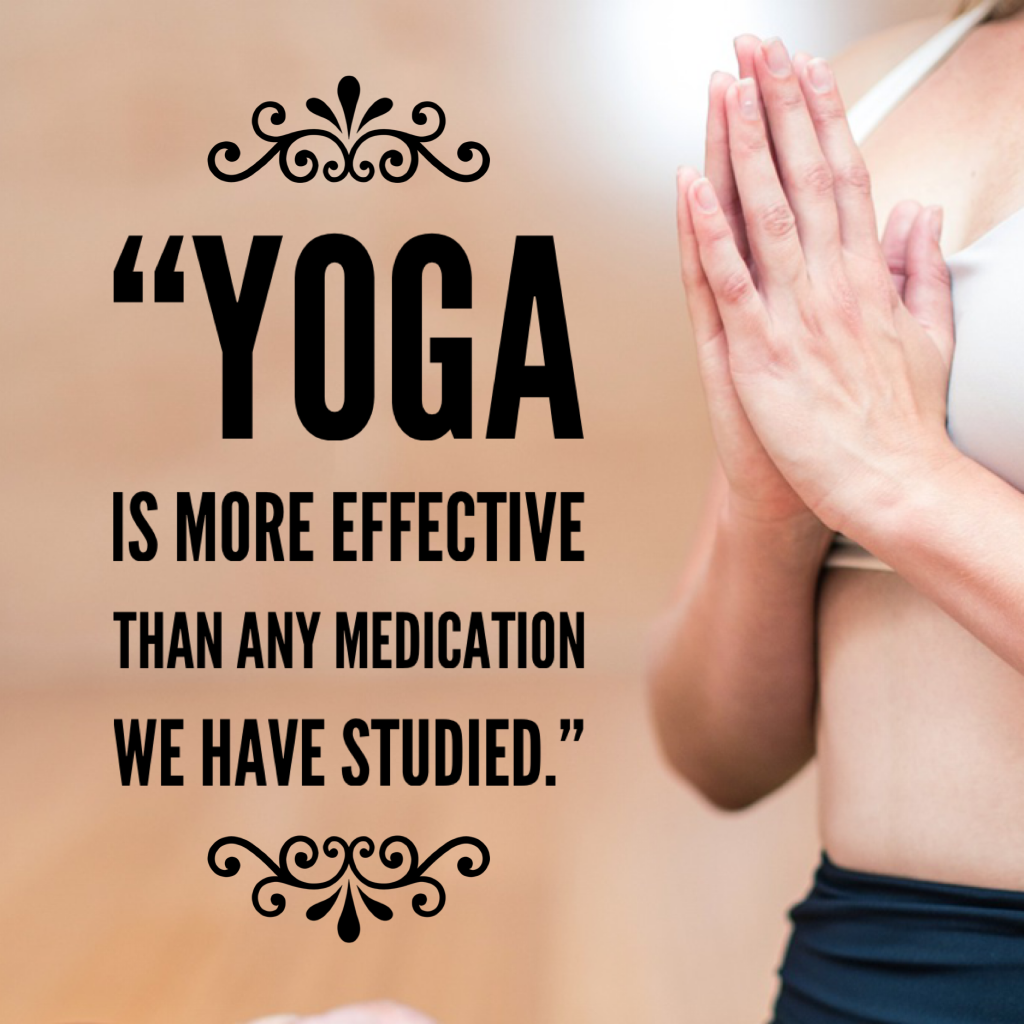Yoga: Ancient Wisdom for Modern Life.

“Yoga is more effective than any medication we’ve studied.”
This was among the things American psychiatrist, researcher, and best selling author of The Body Keeps The Score, Bessel Van Der Kolk had to say on the subject of yoga at a recent conference.
It is promising to see modern-medicine and science finally catching up with what the ancients of India have known for thousands of years… yoga is a powerful medicine and therapy. Best of all? Once you have learned its practices from a knowledgeable teacher or therapist, it’s free… for the rest of your life!
If you are new to yoga, you’ve likely caught wind of the numerous benefits it offers. Nowadays, it is widely recognised that consistently practicing postural yoga, breathwork, and meditation can lead to:
🪷Reduced stress
🪷Alleviated anxiety
🪷Enhanced hormone function
🪷Improved sleep
🪷Elevated mood
🪷Optimised digestion
🪷Normalised blood pressure
🪷Balanced libido
🪷Regulated body temperature
🪷Slowed aging process
🪷Support for overall bodily homeostasis
Ultimately though, the primary function and benefit of postural yoga in combination with a breath and meditation practice is in the training of the mind to simply be where it is. In this process, all the systems of the body function better as the brain is not overloaded with unnecessary information or distraction.
As we move through a series of yoga postures using the breath as an anchor into the present moment, we can observe the nature of our mind and the tendency for the mind to leave the body or the task or pose at hand, wandering off to the myriad of distractions and disturbances. We have an opportunity amidst a posture practice and indeed all of the yogic practices – pranayama (breath control), meditation, mantra, mudra (hand gesture), yoga nidra (yoga sleep)..to name a few – to discipline the mind so it stays with the task before us. Hence, one of the most rewarding benefits of a regular yoga practice is concentration and focus. In cultivating a disciplined practice, we can dramatically improve our ability to be more engaged with whatever it is we are doing. We become better at processing and absorbing information.
I was recently asked about the potential of yoga therapy as an aid for students during the stress of exam time. This led me to contemplate how yoga offers valuable tools to navigate the challenges of modern life overall.
One of yoga’s profound effects lies in enhancing brain function, contributing to the development of crucial skills such as learning capacity and memory retention. Along the way, the brain’s executive functions are improved, aiding in the development of skills like strategic planning, multitasking, social interaction, self-discipline, time management, emotional regulation, creative thinking, adaptability, and sustained focus amidst distractions—collectively, the skills that foster self-regulation.
In today’s fast-paced, media-saturated world, where our minds often struggle with constant stimulation, yoga offers a means to cultivate calm and address the challenges of living in a goal-oriented society. A society that places so much emphasis on efficiency, productivity, and progress. But, are we truly progressing, or going backwards? Yoga indeed creates a space for self-inquiry, and contemplation into the heart of these big life questions.
As children, then students, then employees, we are taught that keeping up with technological advancements and accomplishing “more” in less time, equals personal and professional success. However, we are not given the disclaimer along the way that this way of living can lead to very quick burnout, and potential disconnect from meaningful life experiences.
So how can we live more meaningfully, better manage our daily stressors, and develop a regular routine that provides us with valuable life skills and connections that extend beyond the yoga mat?
Cultivating a yoga practice that incorporates the 8 limbs of yoga (in a modern-day light) can help. The “8 limbs” refers to a path and specific practices that encompass various social and personal ethics (Yama and Niyama), concentration and meditation techniques. These practices combined make up a recipe for wholistic-wellbeing, and optimal mind-body function.
Understanding, and furthermore, practicing yoga’s foundational principles — the Yamas and Niyamas — can help us to foster virtues essential for personal growth: compassion, integrity, respect, and more. This framework equips us to navigate modern life’s pressures with greater resilience and ease.
For yoga novices, it is helpful to recognise that the yoga postures are merely an entry point into yoga’s profound depths. Progressing along the yogic path starts with ethical practice, guided by Yama (‘external world’ interactions) and Niyama (‘internal world’ disciplines). These principles, like non-violence (ahimsa), truthfulness (satya), self-discipline (tapas), self-study (svadhyaya), forge a solid foundation for both yoga and life.
In unity, Yama and Niyama provide ten essential guidelines that pave the way for a rewarding yoga practice and a fulfilling life. To embark on a transformative yoga journey, students and beginners can access a complimentary mini yoga therapy consultation by reserving a spot here.

